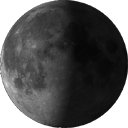
Following months of analysis and testing, the Kepler Space Telescope team is ending its attempts to restore the spacecraft to full working order, and now is considering what new science research it can carry out in its current condition.
Two of Kepler’s four gyroscope-like reaction wheels, which are used to precisely point the spacecraft, have failed. The first was lost in July 2012, and the second in May. Engineers’ efforts to restore at least one of the wheels have been unsuccessful.
Kepler completed its prime mission in November 2012 and began its four-year extended mission at that time. However, the spacecraft needs three functioning wheels to continue its search for Earth-sized exoplanets, which are planets outside our solar system, orbiting stars like our sun in what’s known as the habitable zone — the range of distances from a star where the surface temperature of a planet might be suitable for liquid water. As scientists analyze previously collected data, the Kepler team also is looking into whether the space telescope can conduct a different type of science program, potentially including an exoplanet search, using the remaining two good reaction wheels and thrusters.
“Kepler has made extraordinary discoveries in finding exoplanets including several super-Earths in the habitable zone,” said John Grunsfeld, associate administrator for NASA’s Science Mission Directorate in Washington. “Knowing that Kepler has successfully collected all the data from its prime mission, I am confident that more amazing discoveries are on the horizon.”
On Aug. 8, engineers conducted a system-level performance test to evaluate Kepler’s current capabilities. They determined wheel 2, which failed last year, can no longer provide the precision pointing necessary for science data collection. The spacecraft was returned to its point rest state, which is a stable configuration where Kepler uses thrusters to control its pointing with minimal fuel use.
via NASA Ends Attempts to Fully Recover Kepler Spacecraft, Potential New Missions Considered | NASA.

